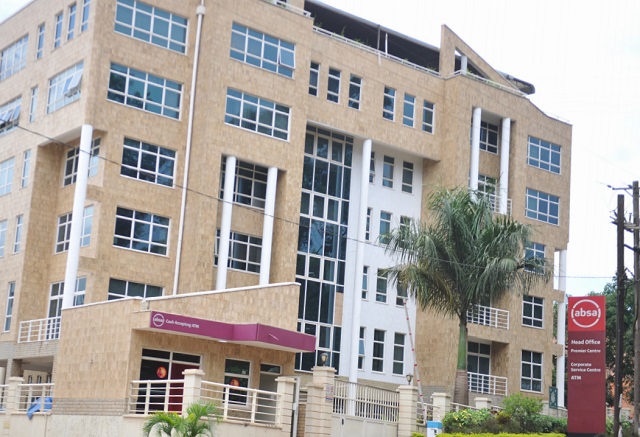Three Justices of Appeal, led by Deputy Chief Justice Hon. Justice Richard Buteera, Hon. Justice Catherine Bamugemereire, and Hon. Mr. Justice Stephen Musota, have ordered Absa Bank Uganda, to pay Progressive Group Of Schools Ltd and its proprietors Ab’mooti Investments Ltd And Kaahwa Erisa Amooti for fraudulently and illegally foreclosing on their school and properties in 2009.
Absa Bank Uganda is jointly liable with Luyanzi Academic Foundation, the company that bought the school from the Bank.
The three justices dismissed Hon. Justice David Wangutusi’s High Court Ruling, Civil Suit No. 204 of 2009 (Commercial Division) delivered on 21st August 2019 and ordered that the sale of the suit properties by Absa Bank Uganda and transfer to Luyanzi Academic Foundation be set aside.
“The Registrar of Titles is hereby ordered to cancel the transfer to and registration of the 2nd Respondent (Luyanzi Academic Foundation) and reinstate the appellants as the registered proprietors of the suit properties who shall be entitled to vacant possession thereof,” ordered the three Justices.
Over and above returning the victim’s properties Absa Bank and Luyanzi Academic Foundation have been ordered to jointly pay to the victims UGX400 million as mesne profits for each of the 13 years they remained in possession of the school since 2009-altogether UGX5.2 billion as at the date of judgement. This will attract an interest of 25% from the date of judgement until payment in full.
The duo were also ordered to pay UGX200 million as general damages at an interest of 6% per annum until paid in full as well as UGX50 million as exemplary damages.
The duo shall also pay the costs of the suit at both the High Court and Court of Appeal.
Background to the case
Progressive Group of Schools Ltd applied for a loan from then Barclays Bank (presently trading as Absa Bank). The loan would be in two tranches, namely UGX650,000,0000 expiring on 25th October 2013 with a 7-year repayment period including 1 (one) year grace period and a loan of UGX650,000,000 expiring on 25th October 2014 with an 8-year loan repayment period.
However, the two facilities were subject to compliance by Progressives Schools Group with the terms and conditions of the facility letter, including perfecting security for Plots 43, 72 and 89, Kyadondo Block 226 belonging to Ab’mooti Investments Ltd and Plot 966 Kyadondo belonging to Kaahwa Erisa Amooti, the 2nd and third appellants respectively.

The perfecting of the securities was done and the bank commenced disbursements of the loan funds. According to the school owners, the bank however only disbursed UGX 650,000,000 and revised the second term letter to a loan of UGX 1,395,092,871 for 60 months, with effect from 28th January 2008 to 28th January 2013. The school owners say, this new amount was never disbursed, which hampered the school’s proprietors’ ability to “execute, implement and complete the expansion and development project of the school as planned under the application”. It also hampered the school’s cashflows and ability to pay back.
Before the expiry of the loan term period under any of the facility letters and after receipt of a substantial amount of repayment on the first facility, the bank on 5th November 2008 made a final demand of the loan amount under the new (the second) facility letter. The bank then commenced the enforcement of the mortgage and advertised the property for sale and eventually effected a sale.
This prompted the school’s owners to rush to court, suing the bank for fraudulently selling the school under High Court Civil Suit No.204 of 2009. The school’s owners among others sought protection against the enforcement of the mortgage. They also lodged Miscellaneous Application No. 301 of 2009 for a temporary injunction to stop the sale. The High Court declined to grant the injunction and thereafter the bank went ahead with the sale, via a sale agreement dated 27th August 2009.
In their High Court suit, the school owners contended that the purported sale and transfer of the securities by the bank was illegal, unlawful and a breach of the loan and mortgage deed. They also accused Absa Bank of breaching the contract when it failed to disburse the full amount as per the loan agreement. They told the court that failure to disburse the contracted amounts directly affected their project and plans wherefrom the funds to repay the facility had been anticipated, resulting in a cash flow crisis, loss of business income of the operating school, which had a high population, and loss of property.
However, High Court Judge, David Wangutusi in a 21st August 2019 ruling, dismissed with costs, Progressive Schools Group’s case. It is then that the School went to the Court of Appeal under Civil Appeal No.349 of 2020 seeking the appellate court to overturn the High Court Ruling.
Miscarriage of Justice
At appeal the three appellate Justices, unanimously agreed with Progressive Schools Group that the High Court erred in finding that the School owed the bank UGX1,357,172,676 when it did not, saying that this was a miscarriage of Justice. This was arrived at after the bank severally failed to prove that they had indeed disbursed UGX1,395,937,562 to the school, an amount against which indebtedness was calculated.
“To our assessment, the 1st respondent (Absa Bank) did not furnish the Court with the sufficient evidence required to prove how the sum of UGX1,395,937,562 was arrived at. In the absence of cogent evidence to prove this, it is more probable than not that the sums were not disbursed as claimed. Specifically, it is beyond doubt that the 2nd land facility of UGX650,000,000 was not disbursed even after the parties formalised their lending relationship,” observed the Court of Appeal Justices.
The three Justices of Appeal also held that the foreclosure of the suit property was unlawful and fraudulent as it was done without conducting a proper valuation to determine the reserve price, was done secretly as opposed to a public auction and was by private treaty without the consent of the owner as is required by the law amongst several other faults.
“In evaluating the evidence on record, while determining the grounds of appeal, we have found that all the particulars of fraud pleaded in the plaint were actually proved. The Actions of the 1st and 2nd respondents (Absa Bank and Luyanzi Academic Foundation respectively) and the manner in which they handled the transactions for the sale of the land, suggest that they connived to defeat the appellants’ interest in the land and make them part with their valuable land and school thereon,” Court of Appeal ruled.

 Letters to My Younger Self: Winnie Nakimuli—"You Are Worthy Simply Because You Exist"
Letters to My Younger Self: Winnie Nakimuli—"You Are Worthy Simply Because You Exist"


